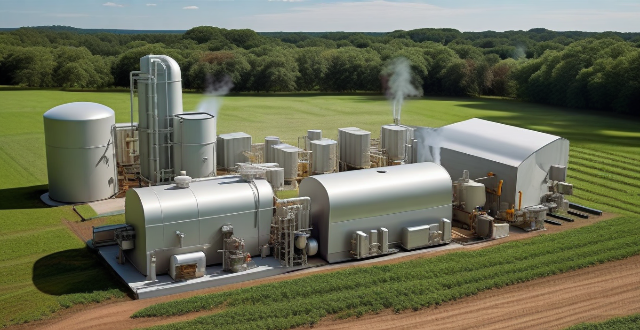Hydrogen fuel cells and conventional battery technologies differ in efficiency, environmental impact, cost, and application. Hydrogen fuel cells have a higher energy density and quicker refueling time but currently rely on fossil fuels for hydrogen production, contributing to greenhouse gas emissions. Conventional batteries are more affordable and have lower upfront costs but require more frequent replacement. In terms of application, hydrogen fuel cells are suitable for transportation and remote power generation, while conventional batteries are widely used in portable devices and electric vehicles. Both technologies have their advantages and disadvantages, making them suitable for different applications.

Comparison between Hydrogen Fuel Cells and Conventional Battery Technologies
Introduction
Hydrogen fuel cells and conventional battery technologies are two different methods of storing and generating energy. Both have their advantages and disadvantages, which makes them suitable for different applications. In this comparison, we will discuss the key differences between these two technologies in terms of efficiency, environmental impact, cost, and application.
Efficiency
Hydrogen Fuel Cells
- High Energy Density: Hydrogen fuel cells have a higher energy density than conventional batteries, meaning they can store more energy per unit weight. This makes them ideal for applications where weight is a critical factor, such as in transportation (e.g., cars, buses, trains).
- Refueling Time: Refueling a hydrogen fuel cell takes significantly less time than recharging a conventional battery. This is because hydrogen can be quickly added to the fuel tank, while recharging a battery requires several hours or even days, depending on the size of the battery.
- Efficiency Losses: Hydrogen fuel cells have lower efficiency losses during operation compared to conventional batteries. This means that more of the stored energy can be converted into useful work, resulting in better overall performance.
Conventional Batteries
- Lower Energy Density: Conventional batteries have a lower energy density than hydrogen fuel cells, meaning they cannot store as much energy per unit weight. This limits their use in applications where weight is a critical factor.
- Recharging Time: As mentioned earlier, recharging a conventional battery takes longer than refueling a hydrogen fuel cell. However, advances in fast-charging technology are reducing this gap.
- Efficiency Losses: Conventional batteries experience greater efficiency losses during operation compared to hydrogen fuel cells. This means that not all of the stored energy can be converted into useful work, resulting in reduced overall performance.
Environmental Impact
Hydrogen Fuel Cells
- Greenhouse Gas Emissions: The production of hydrogen gas for fuel cells currently relies heavily on fossil fuels, which results in greenhouse gas emissions. However, if hydrogen is produced using renewable energy sources (e.g., solar, wind), the environmental impact can be significantly reduced.
- Water Pollution: Hydrogen fuel cells produce only water vapor as a byproduct, making them environmentally friendly in terms of air pollution. However, the production process of hydrogen gas can lead to water pollution if not properly managed.
- Resource Depletion: The extraction and processing of materials required for hydrogen fuel cell production can lead to resource depletion if not done sustainably.
Conventional Batteries
- Mining and Manufacturing: The production of conventional batteries involves mining and processing raw materials, which can have significant environmental impacts due to pollution and resource depletion.
- Battery Disposal: Improper disposal of spent batteries can lead to soil and water pollution, as well as the release of toxic chemicals into the environment.
- Recycling: Recycling programs for conventional batteries exist but are not always widely available or effective, leading to increased waste and environmental harm.
Cost
Hydrogen Fuel Cells
- High Production Costs: The production costs of hydrogen fuel cells are currently higher than those of conventional batteries due to the specialized materials and manufacturing processes required.
- Infrastructure Development: Building a widespread network of hydrogen refueling stations requires significant investment, adding to the overall cost of implementing hydrogen fuel cell technology.
- Maintenance Costs: Hydrogen fuel cells require regular maintenance to ensure optimal performance and longevity, adding additional costs over time.
Conventional Batteries
- Lower Production Costs: The production costs of conventional batteries are generally lower than those of hydrogen fuel cells, making them more affordable for consumers.
- Established Infrastructure: The existing infrastructure for recharging conventional batteries is already in place, reducing the need for additional investment in infrastructure development.
- Replacement Costs: While conventional batteries may have lower upfront costs, they typically need to be replaced more frequently than hydrogen fuel cells, leading to additional costs over time.
Application
Hydrogen Fuel Cells
- Transportation: Hydrogen fuel cells are particularly well-suited for transportation applications, such as cars, buses, and trains, where high energy density and quick refueling times are essential.
- Remote Power Generation: Hydrogen fuel cells can also be used for remote power generation in areas without access to traditional power grids or renewable energy sources.
- Backup Power Systems: Due to their ability to provide continuous power, hydrogen fuel cells are ideal for backup power systems in critical infrastructure such as hospitals and data centers.
Conventional Batteries
- Portable Devices: Conventional batteries are widely used in portable devices such as smartphones, laptops, and cameras due to their low weight and affordability.
- Electric Vehicles: While hydrogen fuel cells are being developed for use in transportation, conventional batteries remain the dominant technology for electric vehicles at present due to their lower costs and established infrastructure.
- Residential Energy Storage: Conventional batteries are increasingly being used for residential energy storage systems, allowing homeowners to store excess solar energy generated during the day for use at night or during power outages.